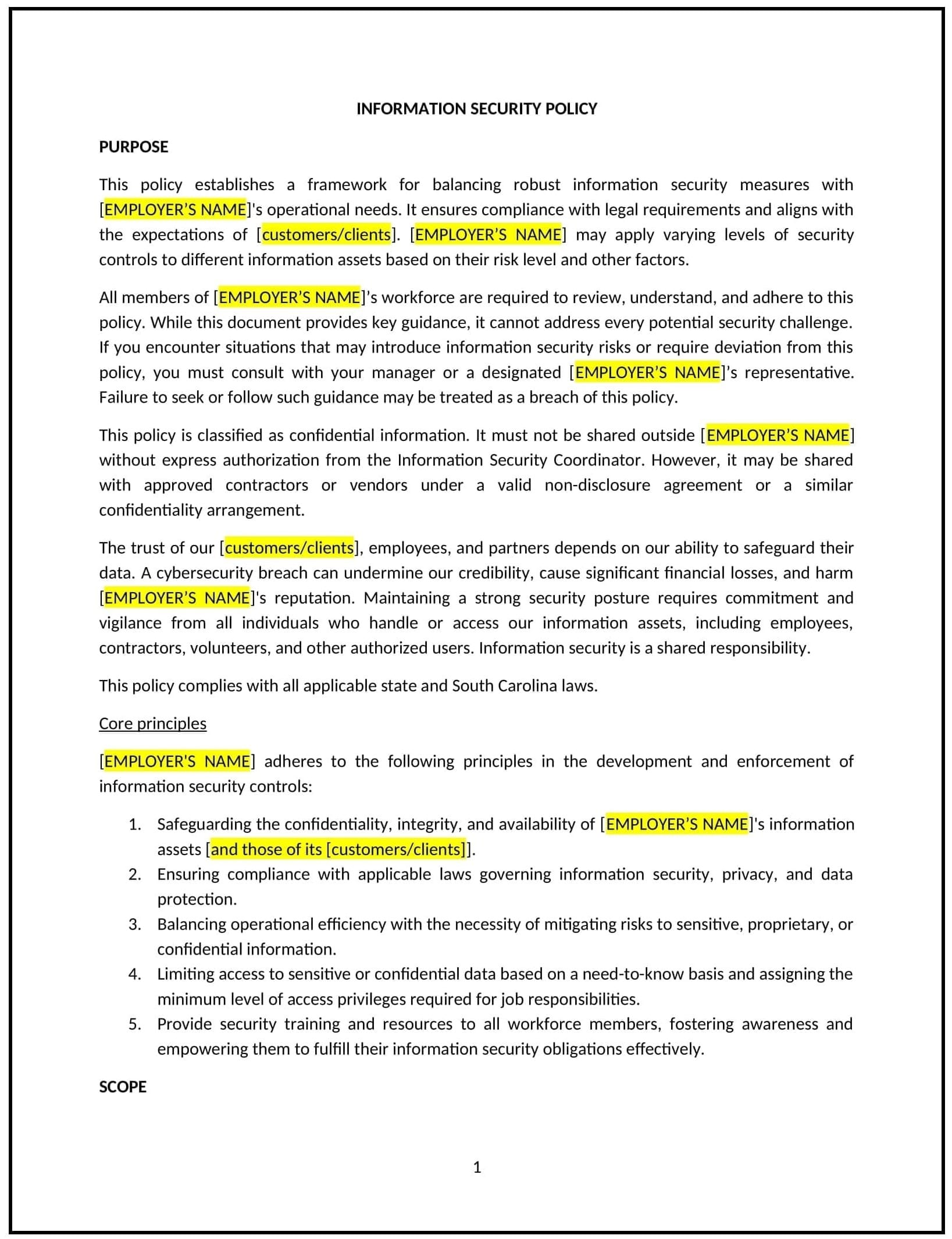Information security policy (South Carolina): Free template
Got contracts to review? While you're here for policies, let Cobrief make contract review effortless—start your free review now.

Customize this template for free
Information security policy (South Carolina)
This information security policy is designed to help South Carolina businesses establish guidelines for protecting sensitive data, such as customer information, employee records, and intellectual property. It outlines procedures for securing data, preventing breaches, and responding to security incidents.
By adopting this policy, businesses can safeguard critical information, reduce risks, and align with general best practices for data security.
How to use this information security policy (South Carolina)
- Define sensitive data: Explain what constitutes sensitive information, such as personal data, financial records, or trade secrets.
- Establish security measures: Outline procedures for protecting data, including encryption, access controls, and secure storage systems.
- Address incident response: Provide steps for identifying, reporting, and resolving security incidents, such as data breaches or cyberattacks.
- Train employees: Educate staff on their responsibilities for protecting sensitive information and recognizing potential security threats.
- Monitor compliance: Regularly review data security practices to ensure adherence to the policy.
- Review and update: Assess the policy annually to ensure it aligns with evolving business needs and security standards.
Benefits of using this information security policy (South Carolina)
This policy offers several advantages for South Carolina businesses:
- Protects sensitive data: Reduces the risk of unauthorized access, theft, or disclosure of critical information.
- Mitigates legal risks: Helps businesses comply with state and federal data protection regulations, such as the CCPA.
- Enhances customer trust: Demonstrates a commitment to safeguarding customer information.
- Aligns with best practices: Provides a structured approach to managing data security.
- Reduces financial losses: Minimizes the potential costs associated with data breaches or cyberattacks.
Tips for using this information security policy (South Carolina)
- Communicate the policy: Share the policy with employees and include it in the employee handbook.
- Provide training: Educate staff on their responsibilities for protecting sensitive information and recognizing potential security threats.
- Monitor adherence: Regularly review data security practices to ensure compliance with the policy.
- Address issues promptly: Take corrective action if security incidents occur or if data is mishandled.
- Update regularly: Assess the policy annually to ensure it aligns with evolving business needs and security standards.